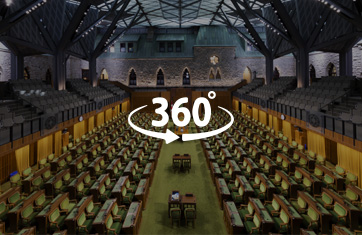EngageParlDiplo – Orientation Session for newly arrived diplomats
Excellencies, distinguished guests, good morning.
I am delighted to welcome you here today in honour of your appointment as diplomatic representatives of your countries in Canada.
On behalf of all Members of the House of Commons, I would like to pay tribute to the contribution that diplomats make to promoting good relations between countries.
I admit that I am biased, but I think you are fortunate to be able to serve your country in Canada.
I hope the time you have here will allow you to explore and learn more about this vast and beautiful country and what it has to offer—especially its people.
But I am not only here to brag about Canada!
That would be impolite, and as you may have heard before coming here, Canadians are well-known for their politeness.
I am here to talk about some of my responsibilities as Canada’s Speaker of the House of Commons.
The Speaker has three main duties.
The first, most visible role, is to preside over the deliberations of the House of Commons and ensure that Members of Parliament are able to represent the interests and concerns of their constituents, debate policy, and hold the government to account.
My priority in this role is to address decorum in the House of Commons.
If you have watched Question Period in the House of Commons, you will know that it is a role that can require patience.
The Chamber of the House of Commons is a place of great passions, but it must also be a place of respect.
The Speaker’s role also requires the utmost impartiality.
I like to think of the role as that of referee: it is important that there is a level playing field with all sides having an equal chance to have their say and be heard.
The second duty of the Speaker is diplomatic and ceremonial.
It was humbling for me to learn that the Speaker of the House of Commons is fifth in precedence after the Governor General, the Prime Minister, the Chief Justice, and the Speaker of the Senate.
In this diplomatic role, I act as spokesperson with organizations outside of Parliament, as well as with the Senate and the Crown.
This gives me the pleasure of participating in events such as this one today.
It also means that I will be happy to welcome you as ambassadors and high commissioners during courtesy calls as part of your postings in Canada.
These courtesy calls give me a chance to exchange ideas and experiences with you.
I would also like to highlight the important role of parliamentary associations.
Many Senators and Members of Parliament take part in the work of the twelve associations of Canada’s Parliament.
These associations, which bring together representatives from all of Canada’s political parties, operate independently of government.
Canada’s parliamentary associations engage in important work with regions all over the world. They also engage with the parliamentary assemblies of intergovernmental organizations, such as la Francophonie, NATO, and the Organization for Security and Co-operation in Europe, as well as with bilateral partners such as France, the United Kingdom, and the United States.
There are also very active associations that lead Canada’s long-standing engagement with the Commonwealth and with the Inter-Parliamentary Union, or IPU, which is the international organization of parliaments of sovereign states.
Before becoming the Speaker, as a Member of Parliament, I was a member of many of these parliamentary associations, whose work enabled me to forge ties with colleagues abroad.
Now, as Speaker, I see that my fellow Canadian parliamentarians, through these associations, are engaging with their counterparts to contribute to key international policy debates.
On a final note, I would like to mention the Parliamentary Officers’ Study Program, which really complements my work as Speaker.
One of my first meetings as Speaker was with participants of this program, which brings together senior officials from Canadian jurisdictions as well as representatives from the Commonwealth, la Francophonie, and other parliaments around the world.
Participants of this program are given a chance to meet and exchange views with senior Canadian parliamentary officials on procedural, administrative, and research services provided to parliamentarians.
The third and last role of the Speaker of the House is administrative.
I am head of the House of Commons Administration and responsible for its governance.
Close to 2,500 employees work in the House of Commons, from interpreters to librarians, to clerks, to cooks and cleaning staff.
All are devoted to helping Members of Parliament do their jobs.
To making democracy work.
Let me conclude now by wishing you all the best, both in your work and in your equally important personal life during your time in Canada.
It is through these professional and personal experiences that we will build even stronger relations between our countries, and work to resolve mutual challenges.
As you begin your tenure as diplomatic representatives to Ottawa, I hope that we will all have many opportunities to do just that.
And as I said at the outset, I hope this Canadian chapter of your diplomatic career is one of your best!
Welcome to Canada!
I am happy now to take your questions.


